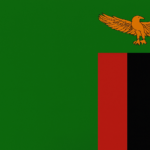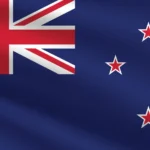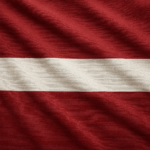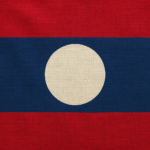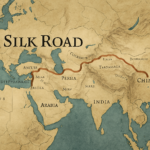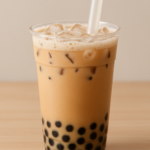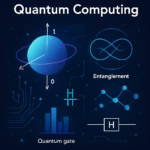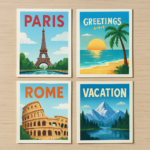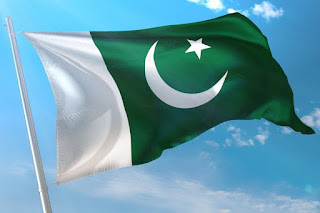
Pakistan, officially the Islamic Republic of Pakistan, is a country in South Asia. It is the fifth most populous country in the world with a population of more than 225.2 million and has the second largest Muslim population in the world. With 881,913 square kilometers, Pakistan is the 33rd largest country in terms of area.
The name Pakistan was derived from two words Pak and Stan which means ‘land of the pure’ in the Urdu language.
Pakistan is home to one of the oldest civilizations in the world, dating back to 4000 BC.
Pakistan shares a land border with Afghanistan, India, Iran, and China.
The famous “Silk Route,” the road by which silk, spices, and new ideas traveled between Europe and Asia, passed directly through Pakistan.
Islamabad is the capital of Pakistan and 9th largest city in the country.
Pakistan was the first official Muslim nation in the world.
The largest city of Pakistan is named Karachi and it is the financial hub of the Pakistan.
Pakistan was originally made of two parts: West Pakistan and East Pakistan, the latter of which became Bangladesh.
Pakistan became independent from the British Indian Empire in 1947.
Pakistan is about one-tenth the size of the continental United States, a bit smaller than twice the size of California.
The national language of Pakistan is Urdu although only 7% of Pakistanis speak it.
The three biggest glaciers outside of polar regions are in Pakistan.
The official currency of Pakistan is the Pakistani rupee.
Forty of the world’s fifty tallest mountain peaks are in Pakistan.
Pakistan’s national sport is field hockey.
The Balochistan Plateau takes up nearly half of Pakistan’s total land area, but only about 5% of the population lives there.
The national cricket team of Pakistan won the Cricket World Cup in 1992.
Green turtles, which are an endangered species in most parts of the world, travel to Pakistan’s shores most laying seasons to place their eggs on the beaches along the Karachi coast.
The national drink of Pakistan is Sugarcane juice.
Pakistan has been ranked the fourth smartest country in the world and has the seventh largest number of engineers and scientists.
Sialkot in Pakistan is the largest producer of footballs or soccer balls in the world.
Malala Yousafzai is the youngest Nobel Prize winner in history. She received the award for her work to help young Pakistani women receive an education.
Pakistan is the first Islamic country to attain nuclear power.
The first prime minister of Pakistan, Liaquat Ali Khan, was assassinated in 1951.
Pakistan has the world’s largest canal-based irrigation system.
Pakistan was the first Muslim nation to elect a female prime minister. Benazir Bhutto began serving only three months after giving birth to her first child in 1988. She was killed by a suicide bomber in 2007.
The voting age in Pakistan is 18 years old.
According to the constitution, Pakistani presidential elections are held every five years.
Located in Pakistan, The ‘Khewra Salt Mine’ is the oldest and largest salt mine in the world.
A barricade often called the “Berlin Wall of Asia” runs along the border between India and Pakistan. The city of Wagah acts as the crossover point between the two nations.
Pakistan has the eleventh-largest armed force in the world.
In 2007, Pakistan welcomed 18% of the world’s total number of refugees, the most of any nation on earth.
Changa Manga is world’s largest and first man-made forest in Pakistan.
Pakistan has historically been an ally for the Western world, even acting as a frontline state during the Cold War, which helped prevent the spread of the USSR.
Mango is the national fruit of Pakistan.
Pakistan is one of the few countries in the world where women have a lower life expectancy than men.
Pakistan’s Republic Day or “Pakistan Day” is celebrated on 23rd March.
The average life expectancy in Pakistan in 67 years.
The markhor is the national animal of Pakistan.
Only 15% of Pakistan’s population uses the internet.
The Shah Faisal Mosque in Pakistan was the largest mosque in the world from 1986 until 1993.
After the 2001 terrorist attack on the World Trade Center in New York City, Pakistan became an ally to the United States, despite Pakistani ties to al-Qa’ida, the organization responsible for the plane crashes.
After Turkey, Pakistan is the only Muslim country to open Combat Jobs for women.
The Pakistani parliament is made up of two branches. Parliament reserves 60 seats for women and ten for minorities (those who practice a religion other than Islam) during the election.
The national flower of Pakistan is the Jasmine.
Rigged elections, nepotism, and civil unrest have plagued Pakistan in the years after their first election, including a civil war in 1971, a prime minister publicly hanged for conspiring to kill a political opponent in 1979, and a series of new elections in order to replace corrupt government officials in 1993 and 1993.
Gwadar in Pakistan is the world’s largest deep sea port.
Pakistan’s economy is supported mostly by agriculture. Cotton, fisheries, and forestry provide one-fifth of its GDP.
